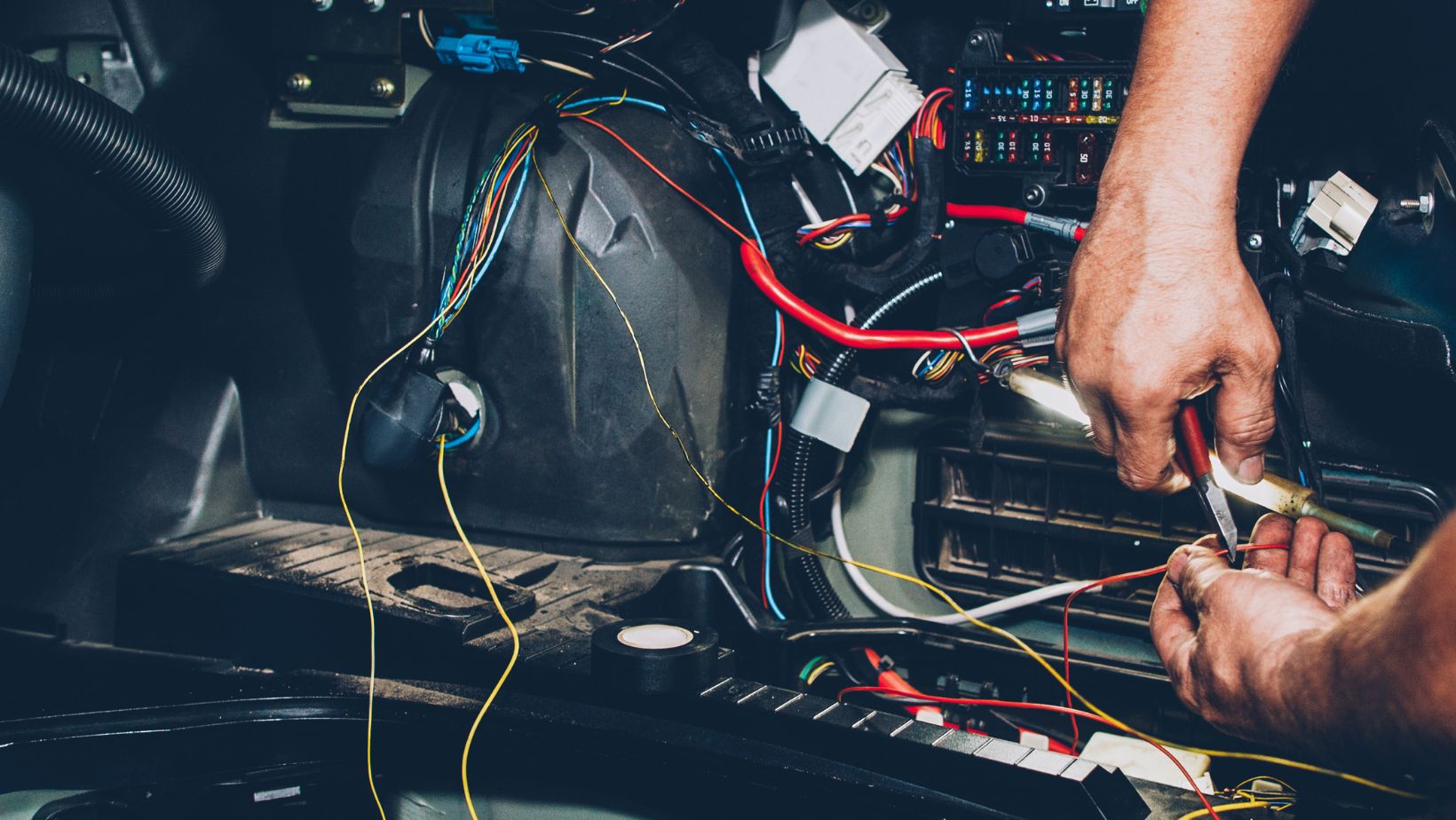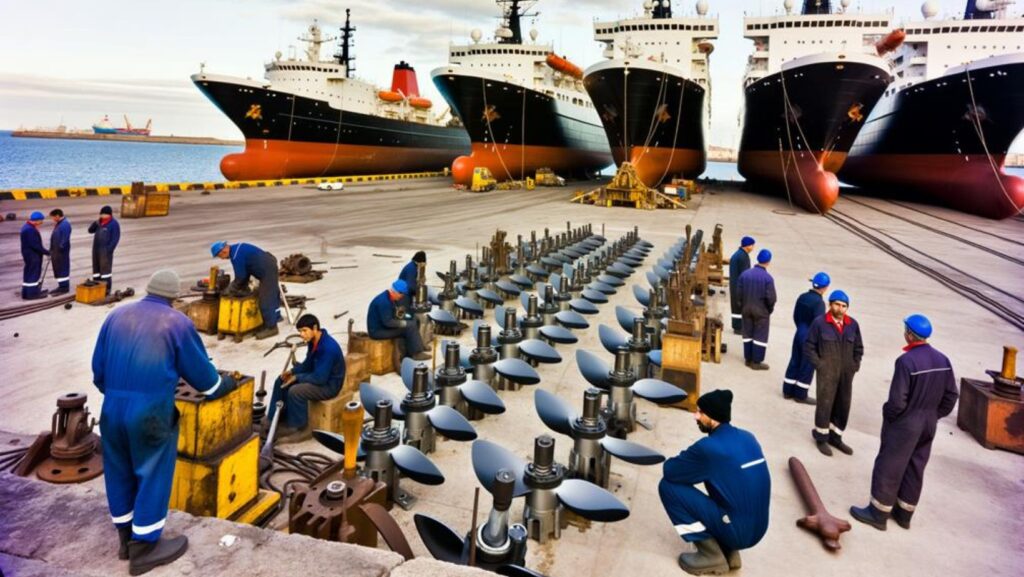You might not know that marine component services go beyond basic maintenance; they include critical aspects like lubrication checks and corrosion control. When you’re responsible for a vessel, ensuring optimal performance and longevity is crucial. With well-trained crews ready to handle emergencies and perform system upgrades, these services can significantly enhance your vessel’s efficiency and readiness. But how do you choose the right provider to keep your marine equipment in top shape? Let’s explore the essential factors you should consider.
Regular Maintenance
Regular maintenance is crucial for ensuring the longevity and optimal performance of your marine components. Start with consistent lubrication checks. Lubrication minimizes friction and wear on moving parts, essential for maintaining mechanical integrity. Ensure that all bearings, gears, and joints receive the correct type and amount of lubricant. Over-lubrication can be just as detrimental as under-lubrication, potentially causing overheating or attracting contaminants.
Corrosion control is another vital aspect of regular maintenance. Marine environments are notoriously harsh, with saltwater and humidity accelerating the corrosion process. Inspect metal components regularly for signs of rust or pitting. Utilize anti-corrosive coatings and anodes to protect susceptible parts. Pay particular attention to areas where different metals come into contact, as galvanic corrosion can occur.
Document your maintenance activities meticulously. Detailed records of lubrication checks and corrosion control measures provide valuable data for future reference, enabling you to identify patterns and predict potential issues. This proactive approach minimizes downtime and repair costs.
Emergency Repairs
Despite meticulous maintenance, unforeseen issues can still arise, necessitating swift and effective emergency repairs to minimize downtime and prevent further damage to marine components.
In such scenarios, having a well-trained crew and an ample supply of spare parts is crucial. When an emergency occurs, your crew’s training becomes invaluable. Properly trained personnel can quickly diagnose problems, execute repairs, and restore functionality, significantly reducing the vessel’s downtime.

Spare parts availability is another critical factor. Stocking essential spare parts onboard ensures that repairs can be commenced immediately without waiting for shipments, which is especially important when operating in remote locations. Critical components such as engine parts, pumps, and electronic modules should always be available to address any potential failures promptly.
Additionally, implementing a robust emergency protocol ensures that all crew members know their roles during a crisis. This structured approach minimizes confusion and accelerates the repair process. Regular drills and simulations can enhance the crew’s readiness for actual emergencies.
System Upgrades
Elevating your vessel’s performance and efficiency often requires strategic system upgrades that incorporate the latest technology and innovations. To achieve this, you must consider both software integration and hardware modernization.
By upgrading your vessel’s software, you can enhance navigation systems, improve fuel management, and optimize engine performance through real-time data analytics and predictive maintenance algorithms.
Hardware modernization is equally crucial. Replacing outdated components with advanced, more efficient alternatives ensures that your vessel runs smoothly and reliably. This could involve upgrading to state-of-the-art propulsion systems, installing energy-efficient generators, or integrating advanced communication equipment. Such enhancements not only improve operational efficiency but also extend the lifespan of your marine equipment.
Integrating new software with existing systems can be complex, requiring meticulous planning and execution. You’ll need to ensure compatibility and seamless interaction between old and new components. This involves detailed system diagnostics, custom software solutions, and rigorous testing to avoid disruptions.
Additionally, incorporating cutting-edge hardware requires precise calibration and alignment with current systems. This meticulous approach ensures that all components work in harmony, maximizing overall vessel performance.
Overhauls
Comprehensive overhauls are essential for maintaining the peak performance and longevity of your marine vessel. By systematically inspecting and refurbishing key systems, overhauls ensure that your vessel remains sea-worthy and efficient. A primary aspect of overhauls involves component replacement. When critical parts show signs of wear or failure, replacing them is paramount to avoiding costly breakdowns or safety hazards. This process includes scrutinizing engine parts, propulsion systems, and auxiliary machinery to identify and replace worn components with high-quality replacements.

After component replacement, thorough performance testing becomes imperative. This step validates the efficiency and reliability of the newly installed parts. Performance testing involves running the engine at various loads and speeds, monitoring critical parameters such as fuel consumption, oil pressure, and exhaust temperatures. Data gathered from these tests helps in fine-tuning the systems and ensuring optimal functionality.
Moreover, overhauls encompass detailed inspections of electrical systems, navigation equipment, and hydraulic systems. By conducting these comprehensive assessments, you can preemptively address potential issues before they escalate, ensuring that your vessel operates smoothly and safely.
Consequently, regular overhauls not only enhance performance but also extend the service life of your marine vessel, safeguarding your investment.
Choosing a Provider
When selecting a provider for marine component services, it’s crucial to evaluate their technical expertise, industry certifications, and track record of reliability. To begin with, scrutinize the provider’s qualifications. Are their technicians certified by recognized maritime authorities? Do they possess specialized training in handling specific marine equipment? This ensures your equipment receives the highest standard of care.
Next, consider the provider reputation. Look for customer reviews, case studies, and industry awards that can offer insights into their reliability and performance. A provider with a strong reputation is likely to deliver consistent and high-quality services.
Cost considerations are another key factor. While it’s tempting to opt for the least expensive option, remember that quality often comes with a price. Analyze the cost structure and ensure there are no hidden fees. Also, compare the pricing to the industry standard to ensure you’re getting value for your money.
Additionally, assess their turnaround times and availability of spare parts. A provider who can quickly source parts and complete repairs minimizes downtime, crucial for maintaining operational efficiency.
Conclusion
Just as a lighthouse guides vessels safely through treacherous waters, Marine Component Services ensures your marine equipment operates flawlessly.
By choosing them, you’ll benefit from expert lubrication checks, corrosion control, and seamless software integration.
Your vessel’s maintenance, emergency repairs, system upgrades, and overhauls will be in the hands of a highly trained crew, guaranteeing peak performance in even the harshest conditions.
Trust Marine Component Services to keep your voyage smooth and uninterrupted.



